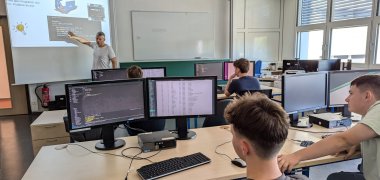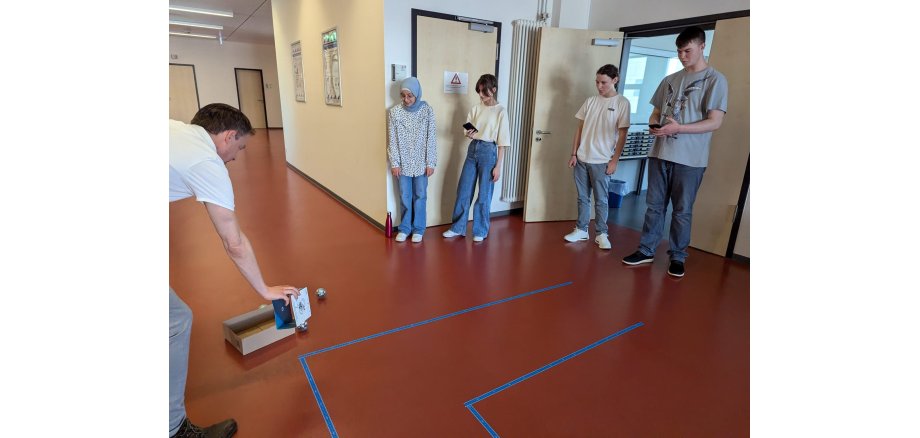The day began with a warm welcome from the professors at Münster University of Applied Sciences. The students were given an insight into the modern laboratories and the highly specialized technical equipment available to the students.
A particular highlight of the visit was the workshop led by Prof. Dr. Götz Kappen and Prof. Dr. Christian Störte, both from the Department of Electrical Engineering. Both professors gave the students a clear understanding of scientific topics.
Prof. Dr. Götz Kappen showed the students how to program spherical robots and how to hack radio-controlled sockets. "It's always great to see that, despite the complexity of the subject matter, the students are fascinated and are slowly getting to grips with their first experiments," commented Prof. Dr. Götz Kappen enthusiastically.
We used a small computer (microcontroller) to read out an acceleration sensor. In addition to changes in speed, this sensor can also detect inclination angles similar to a spirit level. The sensor and microcomputer communicate for data exchange in their own language, which we got to know. The students were then able to carry out various measurements and apply different forces to the circuit, just like on a rollercoaster ride, according to Prof. Dr. Christian Störte. "I am always amazed that every student unconsciously carries such a sensor with them, but how else would our cell phone know whether we want to use it in portrait or landscape format?"
The visit to Münster University of Applied Sciences left a lasting impression on the students. Many of them were enthusiastic and one pupil said "if I could manage it at school, I would like to study there" and another pupil concluded "what I have taken away from today is that programming is interesting and not as difficult as I always thought it would be".
Münster University of Applied Sciences plans to continue offering such visits and workshops in the future to give students the opportunity to gain an early insight into the world of science and research. "We look forward to inspiring many more young people for science," concluded the two professors.
This visit shows once again how important it is to give young people access to scientific topics at an early age and to sensitize them to the challenges of the future. Münster University of Applied Sciences is making a valuable contribution here and is setting an example for the promotion of young talent in the STEM subjects.

